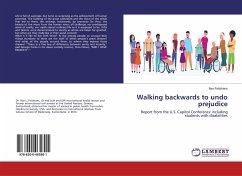Self-determination became the single most influential concept in the field of developmental disabilities in the United States in the 1990s. From its experimental beginnings in southwestern New Hampshire in 1993, by 2000 there were 19 states working with large grants from the Robert Wood Johnson Foundation - the National Initiative on Self-Determination for Persons with Developmental Disabilities - and 23 more with small grants or their own state funds. This work was designed to increase the power, authority, and resources of individuals to control their own destinies. This book traces the origins of the revolutionary concept through the writings of Tom Nerney and a few of his colleagues. It shows that the way we previously thought about, and treated, citizens with developmental disabilities, has been pernicious - and that a true civil rights movement was necessary. More than two decades of rigorous scientific studies have shown that the outcomes of this shift in power are that the quality of lives will improve sharply, while costs decrease or stay the same. In the long run, this will be accepted as the best way to organize human service and support systems.
Bitte wählen Sie Ihr Anliegen aus.
Rechnungen
Retourenschein anfordern
Bestellstatus
Storno








